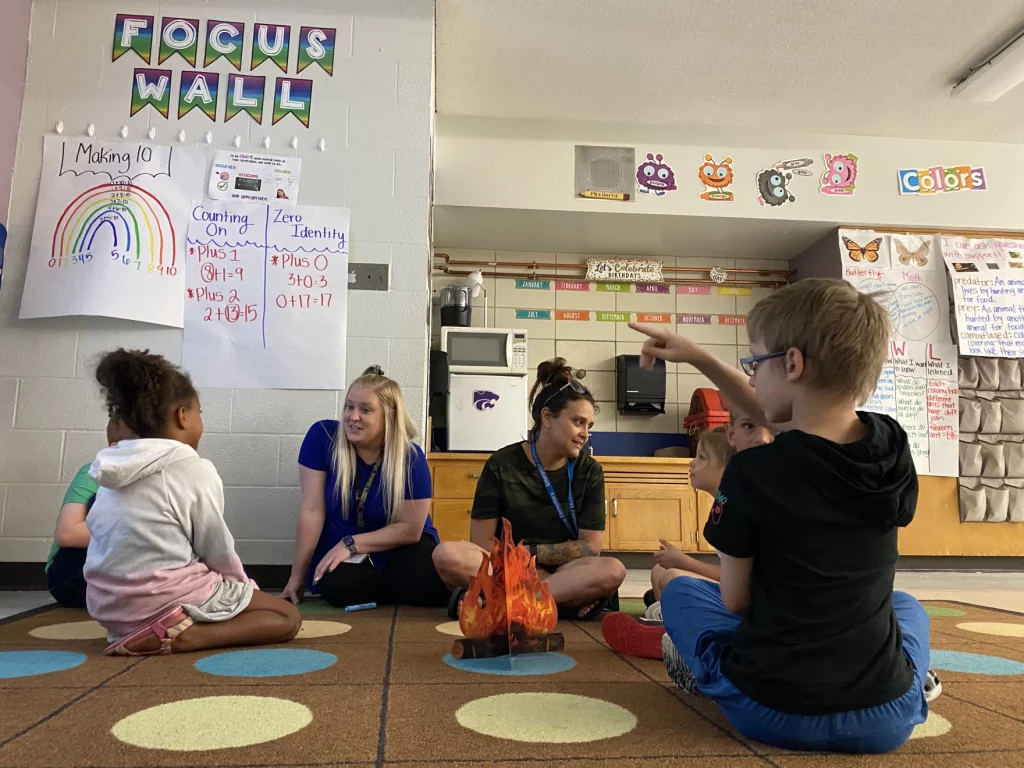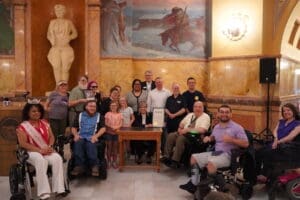As Kansas faces the worst teacher shortage it’s ever known, one group says the state needs to raise teacher pay, elevate the profession and offer student teachers a paycheck.
“Part of the problem is our salaries in education stink,” said Rick Ginsburg, dean of education at the University of Kansas. “Add to that working conditions that are challenging, a public that is rather critical. … So what you end up with is something that is awfully challenging.”
Ginsburg heads a task force created by the Kansas Board of Regents that’s looking at strategies to ease the teacher shortage. The group includes deans of education at all the public universities in Kansas.
Among the 15 recommendations in its draft report is a call to expand the Kansas Teacher Service Scholarship program. It’s available only for hard-to-fill teaching specialties — such as math, science and special education — in certain parts of the state.
“All fields are hard to fill, and all districts need teachers,” Ginsburg said. “Those kinds of restrictions don’t make sense.”
Expanding scholarships would reduce college costs and make teaching a more affordable career option for more people, he said. The group suggests increasing the annual fund from $2.8 million to $20 million over the next three years.
“Let’s face it: One of the barriers to coming into a relatively low-pay field is that the tuition is the same at each institution, whether you’re going into teaching or … engineering,” Ginsburg said. “Whatever we can do to make this more financially feasible makes a lot of sense.”
The task force’s plan, which it will present to Regents later this month, also calls for paying student teachers up to $5,000 for every semester they work in classrooms.
“We are one of the only fields where people do internships that they don’t get paid for, and they actually pay for credit hours to do it,” Ginsburg said.
Districts would have the option of participating in the plan, which would cost about $6.7 million a year statewide. The task force suggests that the state pay 75% of a student teacher’s salary and the local school district pay the rest.
The group also wants to make it easier for education majors to transfer from community colleges to four-year universities, creating a universal set of 60 credit hours that would apply to an elementary education degree.
And it wants teachers who earn advanced credentials or supplemental certificates to get paid more.
“We tend not to do that in the education world, (and) it’s dumb,” Ginsburg said. “They do it in most other fields.”
The task force’s draft report also calls for the Regents to work with other agencies and school districts to raise teacher salaries, improve working conditions and promote the importance of teachers for schools and communities.
The projected cost for that item? Likely tens of millions of dollars.
“These are some of the challenges we can’t resolve — i.e. salaries — but you also can’t sit around,” Ginsburg told the Regents last month. “We identified some areas that can really help our state … in terms of attracting more people into this field.”
The teacher shortage isn’t unique to Kansas, and it began even before the COVID-19 pandemic. A report by the Economic Policy Institute in 2019, titled “The Perfect Storm in the Teacher Labor Market,” pointed to impending retirements, increasing vacancies and declining enrollment in teacher preparation programs.
A report by the National Center for Education Statistics showed that more than half of U.S. public schools were understaffed at the start of this school year. More than two-thirds said too few teacher candidates were applying for open positions.
In Kansas, districts reported about 1,620 vacancies — an increase from previous years. With schools scrambling to staff classrooms, the Kansas Board of Education recently loosened requirements for people who want to work as substitutes.
Suzanne Perez reports on education for KMUW in Wichita and the Kansas News Service. You can follow her on Twitter @SuzPerezICT.
The Kansas News Service is a collaboration of KCUR, Kansas Public Radio, KMUW and High Plains Public Radio focused on health, the social determinants of health and their connection to public policy.
Kansas News Service stories and photos may be republished by news media at no cost with proper attribution and a link to ksnewsservice.org.













